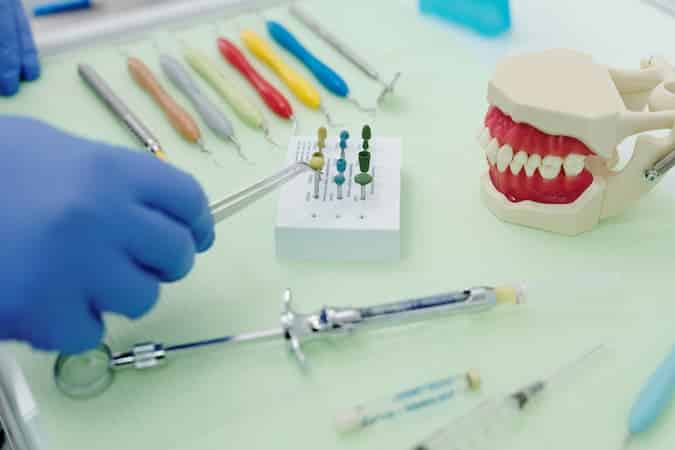
Affordable Dental Insurance for Sole Proprietors

Finding affordable dental insurance as a sole proprietor is crucial for maintaining both your health and your business’s financial stability. Explore various insurance options and choose the right plan for your needs.
Running a business as a sole proprietor offers freedom, but securing affordable dental insurance can be challenging. Without employer-sponsored benefits, it’s essential to find a plan that meets your dental care needs without straining your budget. This guide provides insights into why dental insurance matters, the types of plans available, and how to find the best coverage for your situation.
Key Takeaways
- Dental insurance is essential for financial protection against high dental care costs.
- Various plans, such as DHMO, DPPO, and dental savings plans, cater to different needs and budgets.
- Understanding coverage, network flexibility, and cost considerations are key to selecting the right plan.
Why Dental Insurance is Essential for Sole Proprietors

As a sole proprietor, you’re responsible for all aspects of your business, including managing healthcare costs. Dental insurance plays a crucial role in protecting both your health and your financial stability.
Dental care is expensive, and without insurance, even routine procedures can quickly add up. Insurance helps cover the cost of preventive care, such as cleanings and exams, and provides financial protection against unexpected dental emergencies. Regular dental check-ups can prevent more severe problems, saving you money in the long run.
Dental insurance also ensures that you’re not caught off guard by unexpected dental issues. A cracked tooth or an infection can require expensive treatment, and having insurance means you won’t have to bear these costs alone.
Types of Dental Insurance Plans for Sole Proprietors
When it comes to dental insurance, there’s no one-size-fits-all solution. Understanding the different types of plans can help you choose the best option for your needs and budget.
DHMO (Dental Health Maintenance Organization) Plans
DHMO plans are often the most affordable option, offering lower premiums with no deductibles. However, they require you to choose a primary care dentist within a network, and you’ll need referrals to see specialists. These plans are best for those who prioritize cost savings over flexibility.
DPPO (Dental Preferred Provider Organization) Plans
DPPO plans offer more flexibility, allowing you to visit any dentist, though you’ll save more by staying within the network. These plans usually come with higher premiums and deductibles but are ideal for those who need comprehensive coverage and want the freedom to choose their providers.
Dental Indemnity Plans
Dental indemnity plans provide the highest level of flexibility, allowing you to visit any dentist and receive reimbursement for a portion of the costs. These plans are typically more expensive but are suitable for those who require extensive dental care and prefer to pay upfront and be reimbursed later.
Dental Discount Plans
Dental discount plans are not insurance but offer significant savings on services. These plans are ideal for those with minimal dental needs or who want to reduce out-of-pocket costs.
Factors to Consider When Choosing a Dental Insurance Plan
Selecting the right dental insurance plan involves more than just comparing premiums. Here are key factors to consider:
Coverage Needs
Assess your coverage needs, including preventive care, basic procedures, and major treatments. Your specific dental health needs will dictate the level of coverage required.
Network Flexibility
Evaluate the importance of in-network vs. out-of-network providers. Plans with larger networks offer more options and can reduce your out-of-pocket costs, but might come with higher premiums.
Cost Considerations
Compare the total cost of each plan, including premiums, deductibles, co-pays, and any out-of-pocket maximums. Balancing these costs against the level of coverage provided ensures the plan fits within your budget.
Waiting Periods
Many dental insurance plans have waiting periods for certain procedures, particularly major treatments. If you need immediate dental work, consider plans with shorter or no waiting periods.
Annual Maximums and Deductibles
Check the plan’s annual maximum—the total amount the insurer will pay in a year—and the deductible you must meet before coverage kicks in. Plans with higher maximums and lower deductibles may offer better value if you anticipate needing extensive dental care.
How to Find Affordable Dental Insurance Plans

Finding the right dental insurance plan requires careful comparison and sometimes professional guidance.
Comparison Shopping
Utilize online tools to compare different dental insurance plans. Websites like DentalPlans.com allow you to input your specific needs and receive tailored recommendations. Comparing plans side-by-side can help you identify the best combination of coverage and cost.
Utilizing Professional Guidance
Insurance brokers or financial advisors can provide personalized advice based on your financial situation and dental care needs. They can also help you understand complex policy details and identify plans that offer the best tax advantages.
Alternative Options for Dental Coverage
If traditional dental insurance plans don’t seem like the right fit, consider these alternative options:
Dental Savings Plans
Dental savings plans offer discounts on dental services for a low annual fee. They’re especially useful if you have existing dental issues that might not be covered under traditional insurance due to waiting periods.
Discount Programs
Discount programs provide reduced rates on dental services and other healthcare needs. These programs often have fewer restrictions and can be a cost-effective alternative to insurance, especially when used alongside high-deductible health plans.
Tax Benefits and Deductions for Self-Employed Dental Insurance
As a sole proprietor, you may be eligible for tax deductions that can lower the overall cost of your dental insurance.
Eligibility for Deductions
Dental insurance premiums may be deductible as a business expense on your tax return. This deduction is typically reported on Schedule C (Form 1040), which calculates your net profit or loss from your business. Keeping accurate records of your insurance payments is crucial to maximizing this benefit.
Premium Tax Credits
If you purchase your dental insurance through the Health Insurance Marketplace, you might be eligible for premium tax credits. These credits can reduce your monthly premiums, making dental insurance more affordable. Eligibility is based on your income and family size, so be sure to consult HealthCare.gov for details.
Final Thoughts
Dental insurance is a vital part of your overall health strategy as a sole proprietor. By understanding your options and carefully evaluating your needs, you can find an affordable plan that provides both the coverage and financial protection you require. Don’t wait until a dental issue arises—take action now to secure the best possible insurance for your needs, ensuring both your dental health and your business’s future are well-protected.
Frequently Asked Questions
What are the most affordable dental insurance options?
DHMO plans are typically the most affordable, but they come with restrictions. Dental savings plans offer another cost-effective alternative, especially for preventive care.
Can I deduct my dental insurance premiums on my taxes?
Yes, if you’re self-employed, dental insurance premiums can often be deducted as a business expense. Consult with a tax professional to ensure you’re maximizing your deductions.
Is dental insurance necessary for a healthy business?
While not legally required, dental insurance can prevent large, unexpected costs that could affect your business’s financial stability. Regular dental care also supports your overall health, which is essential for maintaining productivity.
Sources
- Aflac. (2024). “Dental Insurance for Self-Employed Individuals.” Retrieved from Aflac
- SelfGood. (2024). “Best Self-Employed Dental Insurance Plans.” Retrieved from SelfGood
- HealthCare.gov. (2024). “Premium Tax Credits.” Retrieved from HealthCare.gov




